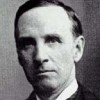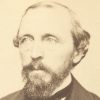France was long a “Despotism tempered by Epigrams.”
Thomas Carlyle (1795-1881) Scottish essayist and historian
The French Revolution: A History, Part 1, Book 2, ch. 4 (1.2.4) (1837)
(Source)
Though given in quotation marks, Carlyle is apparently "quoting" himself.
This quotation is commonly given on its own, though, since Carlyle's thesis at this point in his history is that the royal government had largely become irrelevant in the nation, he continues:
... and now, it would seem, the Epigrams have got the upper hand.
[Source]
Quotations about:
aphorism
Note not all quotations have been tagged, so Search may find additional quotes on this topic.
The supposed wisdom of proverbs is mainly imaginary. As a rule, proverbs go in pairs which say opposite things. The opposite of “More haste, less speed” is “A stitch in time saves nine.” The opposite of “Take care of the pence and the pounds will take care of themselves,” “Penny wise, pound foolish.” The opposite of “Two heads are better than one,” is “Too many cooks spoil the broth.” And so on. The great advantage of a proverb in argument is that it is supposed to be incontrovertible, as embodying the quintessential sagacity of our ancestors. But when once you have realised that proverbs go in pairs which say opposite things you can never again be downed by a proverb; you merely quote the opposite.
Bertrand Russell (1872-1970) English mathematician and philosopher
“On Proverbs,” New York American (1932-11-16)
(Source)
Using maxims is appropriate for those who are older in age when uttered about things for which they have some experience. Using maxims before one is this age lacks propriety as does story-telling: to speak about what one has no experience in is foolish and uneducated. A sufficient sign of this is that bumpkins especially tend to make up maxims and they easily show them off.
[ἁρμόττει δὲ γνωμολογεῖν ἡλικίᾳ μὲν πρεσβυτέροις, περὶ δὲ τούτων ὧν ἔμπειρός τις ἐστί, ὡς τὸ μὲν μὴ τηλικοῦτον ὄντα γνωμολογεῖν ἀπρεπὲς ὥσπερ καὶ τὸ μυθολογεῖν, περὶ δ᾿ ὧν ἄπειρος, ἠλίθιον καὶ ἀπαίδευτον. σημεῖον δ᾿ ἱκανόν· οἱ γὰρ ἀγροῖκοι μάλιστα γνωμοτύποι εἰσὶ καὶ ῥᾳδίως ἀποφαίνονται.]
Aristotle (384-322 BC) Greek philosopher
Rhetoric [Ῥητορική; Ars Rhetorica], Book 2, ch. 21, sec. 9 (2.21.9) / 1395a.9 (350 BC) [tr. @sentantiq (2018)]
(Source)
(Source (Greek)). Alternate translations:
In point of age, the use of maxims befit the old, and should be on those matters of which they have particular experience; so that for one who has not arrived at that stage of life, to use maxims is unbecoming; just it is for him to use fables; and if it be on matters whereof he has no experience, it is absurd, and a mark of ignorance. And the following is a sufficient proof of it, for that the rustics most of all are proverb-mongers, and are ready at uttering them.
[Source (1847)]
The employment of maxims becomes him who is rather advanced in life; and particularly as respects subjects about which each happens to be well informed. Since for one not so advanced in age to sport maxims is bad taste, just as it is for him to have recourse to fables: and the ue of them on subjects about which one is ignorant is silly, and argues a want of education. There is a sufficient sign of the truth of this; for the boors of the country are of all other people most fond of hammering out maxims, and set them forth with great volubility.
[tr. Buckley (1850)]
The use of maxims is suitable to elderly men, and in regard to subjects with which one is conversant; for sententiousness, like story-telling, is unbecoming in a younger man; while, in regard to subjects with which one is not conversant, it is stupid and shows want of culture. It is token enough of this that rustics are the greatest coiners of maxims, and the readiest to set forth their views.
[tr. Jebb (1873)]
The use of maxims is suitable for one who is advanced in years, and in regard to things in which one has experience; since the use of maxims before such an age is unseemly, as also is story-telling; and to speak about things of which one has no experience shows foolishness and lack of education. A sufficient proof of this is that rustics especially are fond of coining maxims and ready to make display of them.
[tr. Freese (1924)]
The use of Maxims is appropriate only to elderly men, and in handling subjects in which the speaker is experienced. For a young man to use them is -- like telling stories -- unbecoming; to use them in handling things in which one has no experience is silly and ill-bred: a fact sufficiently proved by the special fondness of country fellows for striking out maxims, and their readiness to air them.
[tr. Roberts (1924)]
The use of maxims is suitable for one who is advanced in years, and in regard to things in which one has experience; since the use of maxims before such an age is unseemly, as also is story-telling; and to speak about things of which one has no experience shows foolishness and lack of education. A sufficient proof of this is that rustics especially are fond of coining maxims and ready to make display of them.
[tr. Freese (1926)]
It is fitting for someone more advanced in age to speak in maxims, and about things he has experience of, since it is inappropriate for someone not of that age to speak in maxims, just as it also to tell myths, and to do so about things he is inexperienced in, this being a mark of foolishness and lack of education. There is a sufficient sign of this: country bumpkins are the ones most given to uttering maxims ....
[tr. Bartlett (2019)]
An aphorism never coincides with the truth: it is either a half-truth or one-and-a-half truths.
Karl Kraus (1874-1936) Austrian writer, journalist, aphorist
Half-Truths and One-and-a-Half Truths [tr. Zohn (1976)]
(Source)
What are the proper proportions of a maxim? A minimum of sound to a maximum of sense.
Mark Twain (1835-1910) American writer [pseud. of Samuel Clemens]
More Tramps Abroad, Epigraph, ch. 23 (1897)
(Source)
Maxims are to the intellect what laws are to actions; they do not enlighten, but they guide and direct; and although themselves blind, are protective. They are like the clue in the labyrinth, or the compass in the night.
Joseph Joubert (1754-1824) French moralist, philosopher, essayist, poet
Pensées, # 138 (1838)
(Source)
Alt. trans.: "Maxims are to the intelligence what laws are to action: they do not illuminate, but they guide, they control, they rescue blindly. They are the clue in the labyrinth, the ship's compass in the night."
The aphorism is a personal observation inflated into a universal truth, a private posing as a general. A proverb is anonymous human history compressed to the size of a seed.
Stefan Kanfer (1933-2018) American writer, editor, journalist
“Proverbs or Aphorisms,” Time (11 Jun 1983)
(Source)
The essence of aphorism is the compression of a mass of thought and observation into a single saying. It is the very opposite of dissertation and declamation; its distinction is not so much ingenuity, as good sense brought to a point.
John Morley (1838-1923) English statesman, journalist, writer [John, Viscount Morley]
“Aphorisms,” speech, Edinburgh (1887)
(Source)
Our live experiences, fixed in aphorisms, stiffen into cold epigram. Our heart’s blood, as we write with it, turns to mere dull ink.
F. H. Bradley (1846-1924) British idealist philosopher [Francis Herbert Bradley]
Aphorisms (1930)
(Source)
The best aphorisms are pointed expressions of the results of observation, experience, and reflection. They are portable wisdom, the quintessential extracts of thought and feeling. They furnish the largest amount of intellectual stimulus and nutriment in the smallest compass. About every weak point in human nature, or vicious spot in human life, there is deposited a crystallization of warning and protective proverbs.
William Rounseville Alger (1822-1905) American writer, minister, translator
“The Utility and the Futility of Aphorisms,” Atlantic Monthly (Feb 1863)
(Source)
Often paraphrased, "Aphorisms are portable wisdom."
Proverbs contradict each other. That is the wisdom of a nation.
Stanislaw Lec (1909-1966) Polish aphorist, poet, satirist
Unkempt Thoughts [Myśli nieuczesane] (1957) [tr. Gałązka (1962)]
(Source)
Poets are like proverbs: you can always find one to contradict another.
[Les poëtes sont comme les proverbes : l’un est toujours là pour contredire l’autre.]
Jules Verne (1828-1905) French novelist, poet, playwright
The Survivors of the Chancellor, ch. 5 “An Unusual Route” (1875)
(Source)
“Life is like a sewer — what you get out of it depends on what you put into it.” It’s always seemed to me that this is precisely the sort of dynamic, positive thinking that we so desperately need today in these trying times of crisis and universal brouhaha.
Almost every wise saying has an opposite one, no less wise, to balance it.
George Santayana (1863-1952) Spanish-American poet and philosopher [Jorge Agustín Nicolás Ruíz de Santayana y Borrás]
The Life of Reason or The Phases of Human Progress, Vol. 5 “Reason in Science,” ch. 8 “Prerational Morality” (1905)
(Source)
But, perhaps, the excellence of aphorisms consists not so much in the expression of some rare and abstruse sentiment, as in the comprehension of some obvious and useful truths in a few words. We frequently fall into error and folly, not because the true principles of actions are not not known, but because, for a time, they are not remembered; and he may, therefore, be justly numbered among the benefactors of mankind, who contracts the great rules of life into short sentences, that may be easily impressed on the memory, and taught by frequent recollection to recur habitually to the mind.
Samuel Johnson (1709-1784) English writer, lexicographer, critic
The Rambler, #175 (19 Nov 1751)
(Source)
I ask for your indulgence when I march out quotations. This is the double syndrome of men who write for a living and men who are over forty. The young smoke pot — we inhale from our Bartlett’s.























